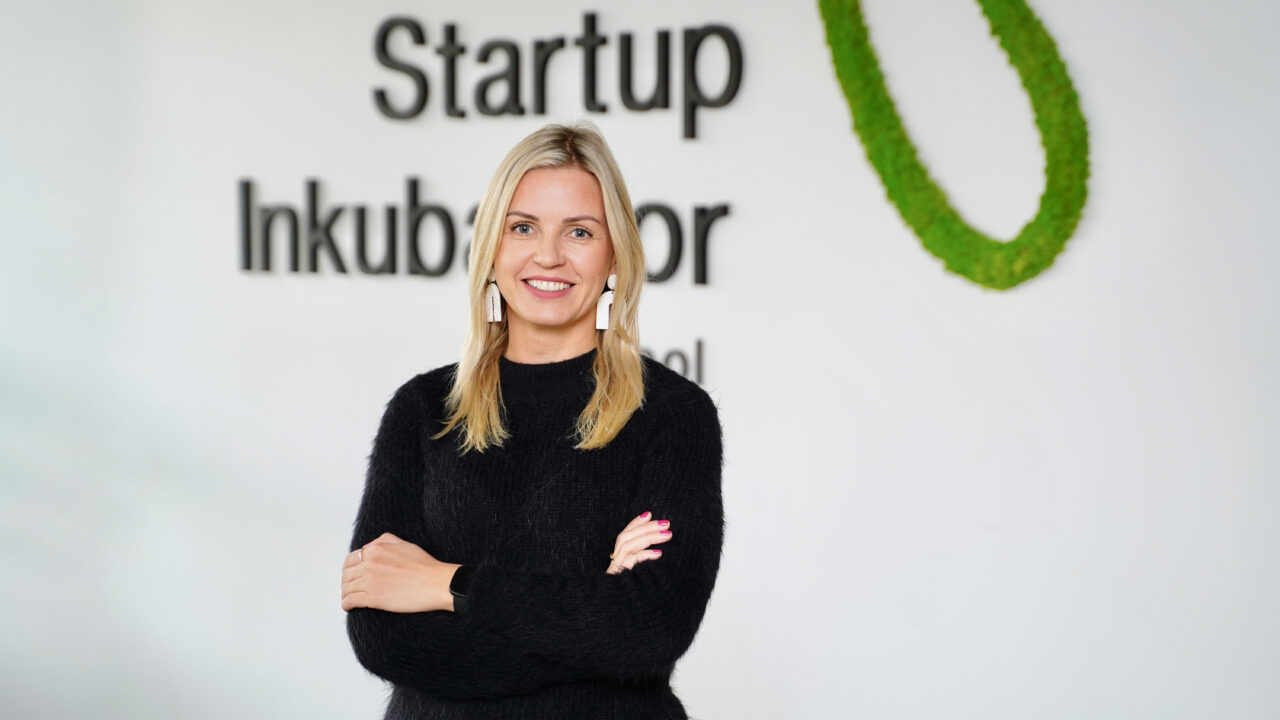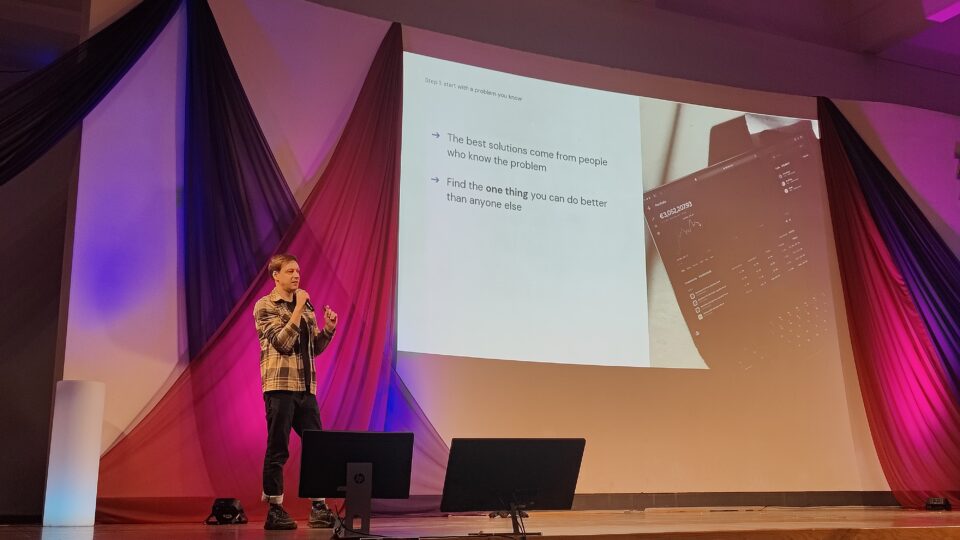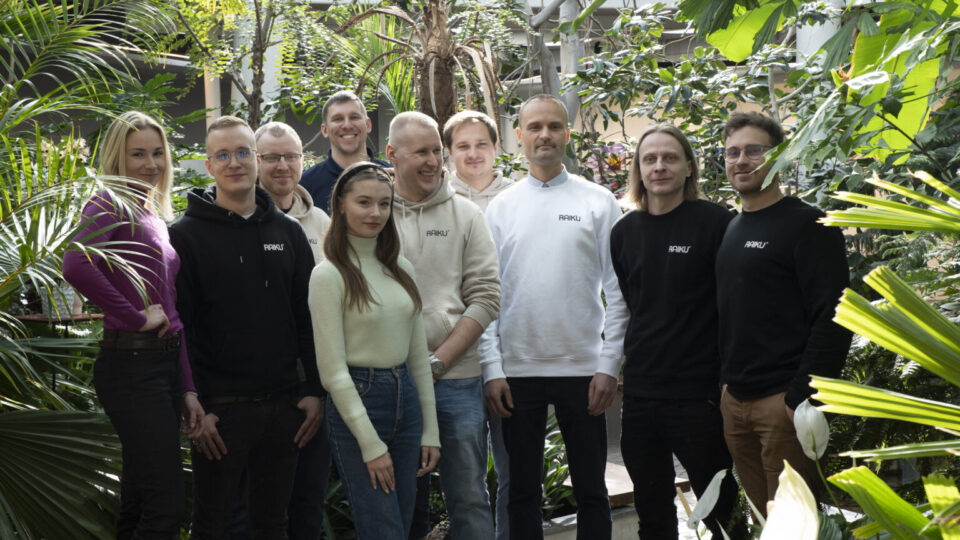The Estonian startup landscape constantly evolves and is shaped by emerging technological directions and trends. Anne-Liisa Elbrecht, Head of the Tehnopol Startup Incubator, shared her thoughts on Estonian startups’ current state, challenges, and prospects.
Health tech and defence innovation – growth sectors of the future
Health technology continues its upward trajectory. “I believe there are breakthroughs ahead in health tech that we can’t even imagine today,” said Elbrecht. The symbiosis between healthcare and technology opens up new possibilities – from personalized medicine to mental health solutions.
Since 2023, Estonia has been home to NATO DIANA (Defence Innovation Accelerator for the North Atlantic), an innovation accelerator focused on advancing defence and security technologies. Participation in the NATO DIANA program provides startups access to testing opportunities and networks that would otherwise be difficult to reach.
According to Elbrecht, interest in defence technology is on the rise. In 2024, more than 1,300 startups from across the alliance applied to join the NATO DIANA accelerators. By 2025, that number had already grown to over 2,600. “This shows that the defence sector is becoming increasingly attractive to startups,” Elbrecht noted. At the same time, it is essential to highlight that the accelerator focuses on dual-use technologies that can be applied in civilian and defence contexts.

Wayren is one of the Estonian companies participating in the NATO DIANA accelerator. Wayren’s software platform operates on soldiers’ smart devices and vehicles, synchronizing data locally – eliminating the need for central infrastructure. Photo: Wayren
Tech nation Estonia: still at the forefront of innovation?
For years, Estonia has been held up as a role model in digital technologies – but has it managed to maintain that edge? “We’ve become so accustomed to technology that we might no longer notice how deeply digital solutions impact our everyday lives. When you find yourself in a country where you have to call someone to order a taxi, you realize just how advanced Estonia is,” said Elbrecht.
“We’ve become so accustomed to technology that we might no longer notice how deeply digital solutions impact our everyday lives. When you find yourself in a country where you have to call someone to order a taxi, you realize just how advanced Estonia is.”
Still, Estonia’s status as a digital nation is not a given – competition is fierce, and other countries are advancing rapidly. “We must continue to focus on innovation to maintain our position,” Elbrecht emphasized.
Estonian startups enjoy several substantial advantages, though there are also challenges. “Estonia is small, but it’s an excellent place to test and validate new ideas. However, our financial capacity is limited compared to larger countries.”
Startups in Estonia cannot afford to focus solely on the local market. Success lies in a global mindset and the ambition to create solutions that resonate worldwide.
The success formula: the right team, a strong idea, and market validation
Investor interest often follows current trends. While general digital technologies were once in the spotlight, today, the focus has shifted toward defence tech, artificial intelligence, and health tech. Other digital solutions may appear less attractive, but that doesn’t mean they lack market potential.
According to Elbrecht, building a successful startup depends on the team, the idea, and the timing. It’s crucial to have early conversations about why each person is involved in the startup and what motivates them. “If the team isn’t on the same page or there are disagreements over finances, things can fall apart quickly,” she warned.
Another critical factor is market validation. “If you’re unwilling to share your idea with anyone, how do you expect to move forward?” Elbrecht asked. Without early testing and feedback, startups often struggle once they hit the market.
“If you’re unwilling to share your idea with anyone, how do you expect to move forward?”
Startup success rates are relatively low – it’s estimated that around 90% never reach broader markets or shut down within the first few years. However, the startups working with the Tehnopol Startup Incubator show more substantial outcomes. “Around 60% of our startups survive, which is an excellent result in this field,” Elbrecht said.

Elbrecht emphasized that the success of a startup depends heavily on the team, the idea, and the timing. It's crucial to have honest discussions early on about why each person is part of the startup and what drives them. If the team isn't on the same page or if financial disagreements emerge, it can quickly lead to the company falling apart. Photo: Unsplash
Debunking startup myths
The startup world may appear glamorous and carefree from the outside – office dogs, fridges full of soft drinks, and flexible schedules. In reality, the field is full of challenges and risks. “The startup world is challengingly exciting. At first, it might feel like you must do everything at once, but in truth, you need to choose a focus and build a strong team,” said Elbrecht.
Startup life isn’t for everyone – it also demands certain personality traits. “If you’ve already decided to start a company, you’ve taken the first step and left behind that classic Estonian modesty,” Elbrecht noted. Successful founders are bold, willing to take risks, and capable of constantly adapting to new situations.
“If you’ve already decided to start a company, you’ve taken the first step and left behind that classic Estonian modesty.”
She emphasized that startups are far from a guaranteed path–they’re a continuous process of testing, iterating, and sometimes pivoting. “You need to handle pressure and be able to make quick decisions.” Time management is also crucial, especially since many founders initially juggle entrepreneurship with other jobs.
According to Elbrecht, Estonia’s major startup success stories will likely come from health technology and defence innovation. “Mental health and defence innovation–these areas experiencing the fastest growth right now.”
So, what’s the key to success? “It all starts with a strong team and a clear goal. And don’t forget to celebrate the small wins – every step forward is an achievement!” Elbrecht concluded.




